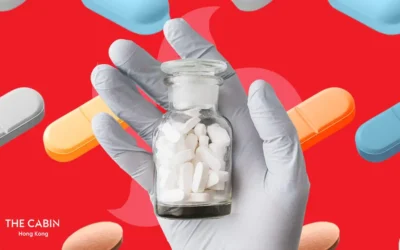Talking to your kids about your struggle with addiction and what it finally took to seek recovery is difficult, but it’s definitely worth it. Here’s how to make this conversation as painless and effective as possible.

Sharelines
Talking to children about addiction is a daunting prospect, to say the least. Even if addiction has finally given way to a healthy recovery, speaking openly about the hardships you endured and brought upon others is difficult.
But it’s also gravely important. Genes have a strong role to play in addiction. In fact, at least half of a person’s susceptibility to drug or alcohol addiction can be traced back to genetic factors. If you’ve struggled with the illness of addiction in your life, it’s essential to understand that your child has an elevated risk of dealing with the same.
Young people have the right to know what they’re up against in life. Your openness in talking about these issues could help prepare them for the future and arm them with the knowledge they need to live addiction-free.
This isn’t an easy discussion to have, but it’s also probably not going to be as difficult as you imagine. As tempted as you are to skip out on this talk altogether, remind yourself that any frank discussion you have now could save your child from a great deal of despair and heartache down the road. It could even end up saving their life.
[gap height=”10px;”]
[gap height=”10px;”]
Make the Recovery Talk Age-appropriate for Your Kid
The extent to which you speak to a child about your addition and the steps you have taken to maintain recovery depends largely upon how old they are. Making the discussion age-appropriate helps ensure that they can process the information and react appropriately.
Here are some guidelines for how to tailor the discussion to various age ranges:
Speaking to Children About Recovery and Addiction
For younger children, it’s important that the child feels safe and comfortable enough to speak directly. The details of drug or alcohol abuse will be difficult to grasp and process, but the idea of wanting something so badly that you have trouble saying no to it is relatable. If the concept of addiction needs to be addressed, consider starting with an example along these lines. For very young children, it may be enough to speak vaguely of addiction as an illness without saying much more.
Speaking to Preteens About Recovery and Addiction
As children head into adolescence, they’re going to become more inquisitive and better capable of grappling with complex concepts. At this stage, you can begin to talk about the illness of addiction in greater detail. Connect the illness to the symptoms (i.e. ‘My illness, which was caused by an addiction to alcohol, made me behave badly at work.’). Attempt to be as factual as possible, without colouring the affliction as a moral failure or shortcoming.
Speaking to Teenagers About Recovery and Addiction
When you’re speaking to teenagers about addiction and recovery, the most important thing you can do is be open and direct. Older kids will see right through your attempt to gloss over the severity of the situation or omit important details. They’ll immediately become disengaged if they sense that you’re being disingenuous. Address the nature of the addiction and speak directly about your recovery process.
Help Your Kids Understand the Relationship between Relapse and Recovery
The reality that addiction is a complex disease is difficult for many adults to understand – but children may have an easier time making sense of this. By exposing them to this truth early in life, you’ll be setting them up to better cope with the potential symptoms of the disease later in life.
By the same token, framing your struggle with addiction as an illness makes it easier for your kids to understand symptoms you struggle have nothing to do with them. If and when a relapse occurs, they’ll view it as a symptom of your disease – a flare-up that requires more intensive treatment.
This is not an attempt to justify relapse, but it does allow for the fact that relapse is part of the recovery process for many. Above all, it prepares your children for the possibility of relapse and helps assure them that your condition is not their fault. It has nothing to do with them.
[gap height=”10px;”]
[gap height=”10px;”]
Maintain Open Communication in Talking to Your Kids about Recovery
When you talk to your kids about your addiction and recovery, they’re most likely going to have lots of questions. Commit to being as open and honest as you feel is appropriate. Lying to them about your addiction history is not going to help.
It’s also important to remember that you’re not alone. If you need to talk to someone about how to speak about addiction with your children, the professionals at The Cabin Hong Kong are here to help. We offer discreet and confidential addiction counselling, and this includes ongoing support in recovery. We can also connect you with recovery fellowships in your area with others who are struggling with the same issues. Contact us today to learn more.




